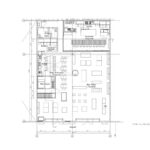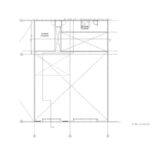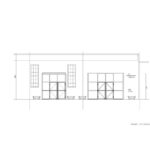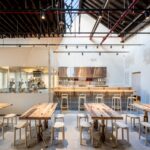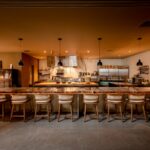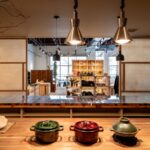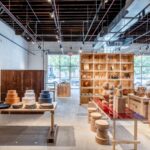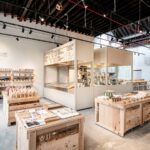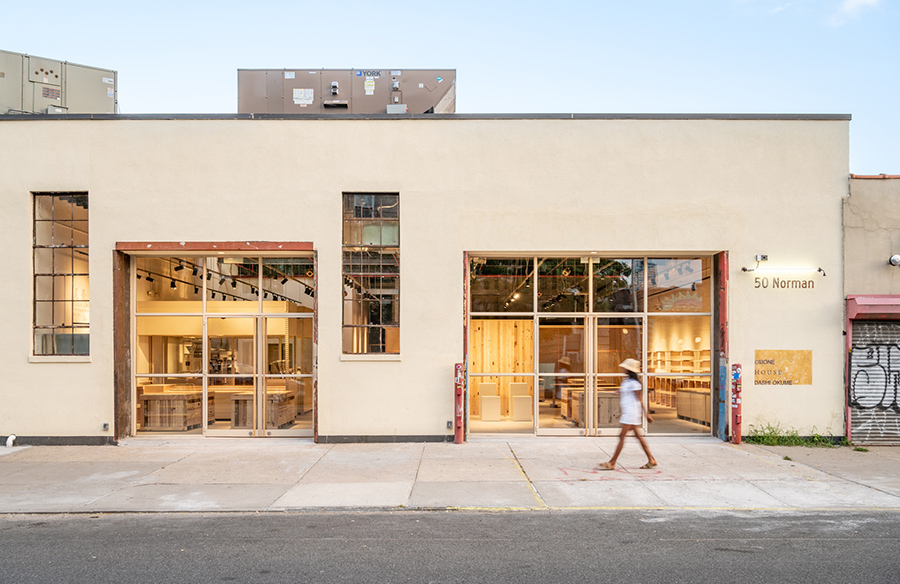
Designing Across Borders: The Vision for 50 Norman
In the vibrant neighborhood of Norman Ave, Brooklyn, NY, the collaborative efforts of Jo Nagasaka and Schemata Architects gave rise to “50 Norman,” a unique retail complex with a Japanese food theme. Comprising “HOUSE BROOKLYN,” a Japanese French restaurant, “CIBONE,” showcasing Japanese ceramics and culinary tools, and “Okume,” a seafood processing store rooted in the Tsukiji fish market since 1871, the complex aimed to seamlessly integrate Japanese quality into a global setting.
The Away Game Challenge: Sustaining Japanese Quality Abroad
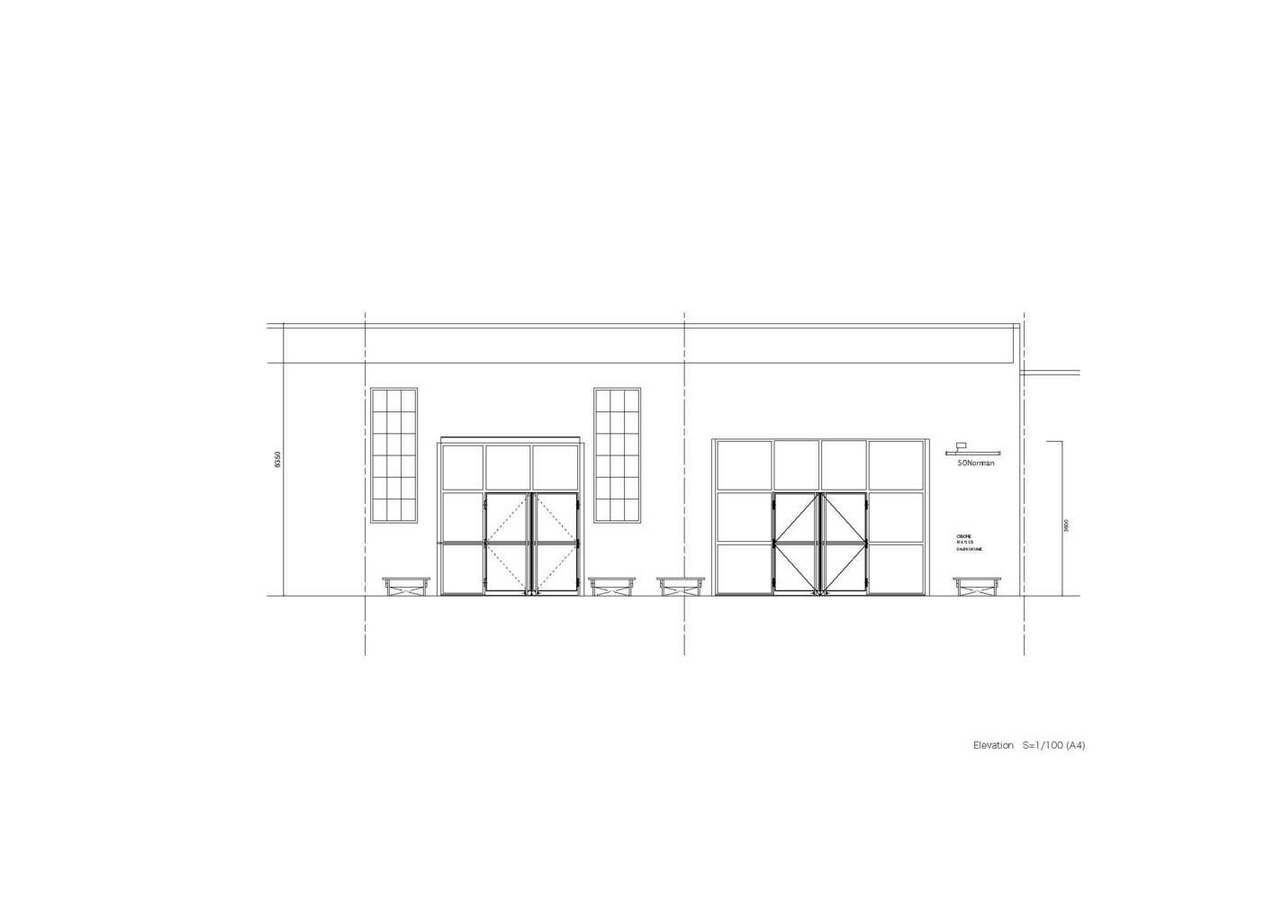
Embarking on this overseas venture, the architects faced the challenge of maintaining the high standards characteristic of their projects in Japan. The struggle to replicate the success of their home projects overseas prompted contemplation over design approaches. The architects deliberated between creating a universally adaptable, simplified design and preserving the quintessential Japanese quality that defined their work.
Innovative Concept: DEKASEGI and Material Transformation
The innovative solution came in the form of “DEKASEGI,” a concept centered around repurposing materials slated for dismantling and disposal in Japan. The idea involved reducing the volume of these materials, shipping them overseas, and leveraging local craftsmanship for assembly. Emphasizing sustainability, the architects sought to capitalize on the unique characteristics of used and aged wood materials, preserving their original craftsmanship and distinctive features.
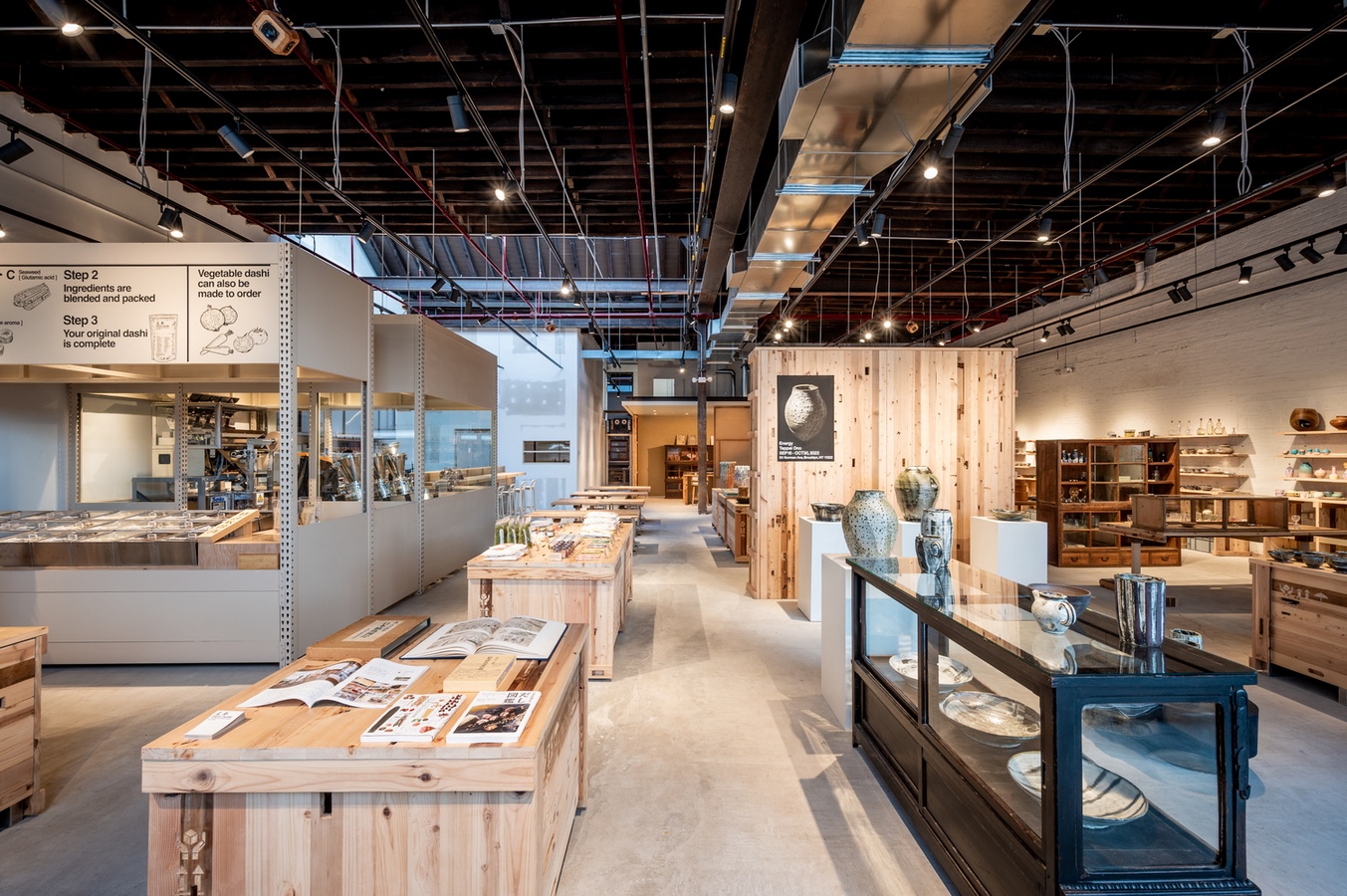
Challenges Amidst COVID-19: Adapting to Unpredictable Circumstances
Initiating the first DEKASEGI project coincided with the peak of the COVID-19 crisis, introducing unforeseen challenges. Shipping durations grew unpredictable, and costs surged as a consequence. Originally planned for a three-month duration, the shipping process extended to four, then five months. To counter rising expenses, the decision was made to utilize air transport, minimizing volume by constructing crates that could double as display stands for the stores.
Shift in Approach: Overcoming Air Shipping Hurdles
While the initial plan involved using crates efficiently, the escalating costs prompted a reevaluation. The architects pivoted to a strategy of disassembling the components, arranging them meticulously within the limited airplane space, and abandoning the original crate concept. This shift allowed for the insertion of smaller pieces without wasting any available space. Despite the challenges, the architects remained committed to preserving the integrity of their original design.
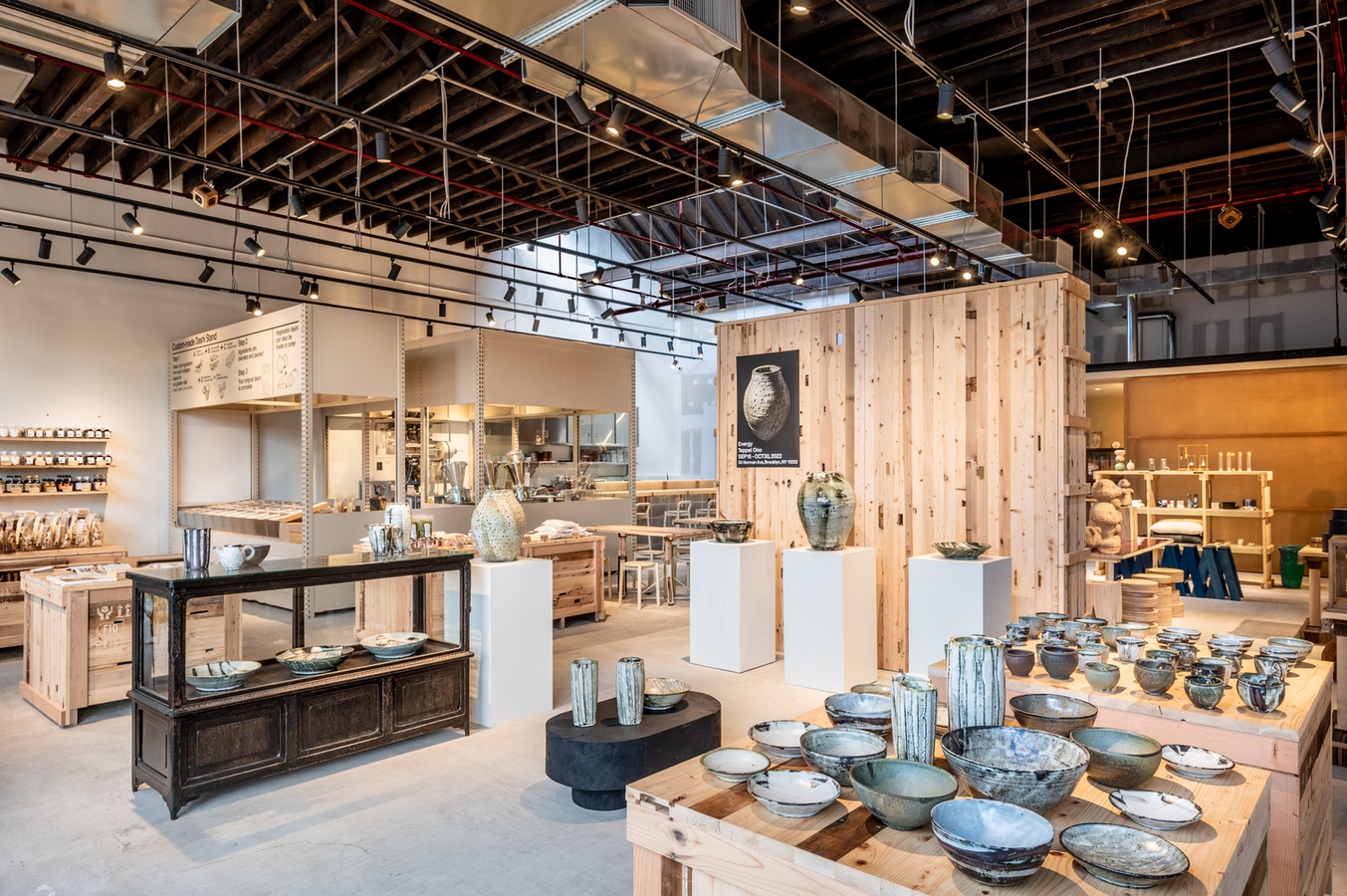
Conclusion: Navigating Complexity for Design Excellence
“50 Norman” stands as a testament to the architects’ dedication to excellence across borders. By creatively addressing challenges, from the DEKASEGI concept to adapting to COVID-19-induced uncertainties, Jo Nagasaka and Schemata Architects succeeded in realizing a Japanese-themed retail complex that seamlessly integrates into the diverse fabric of Brooklyn, emphasizing the importance of innovation and adaptability in cross-border design endeavors.


